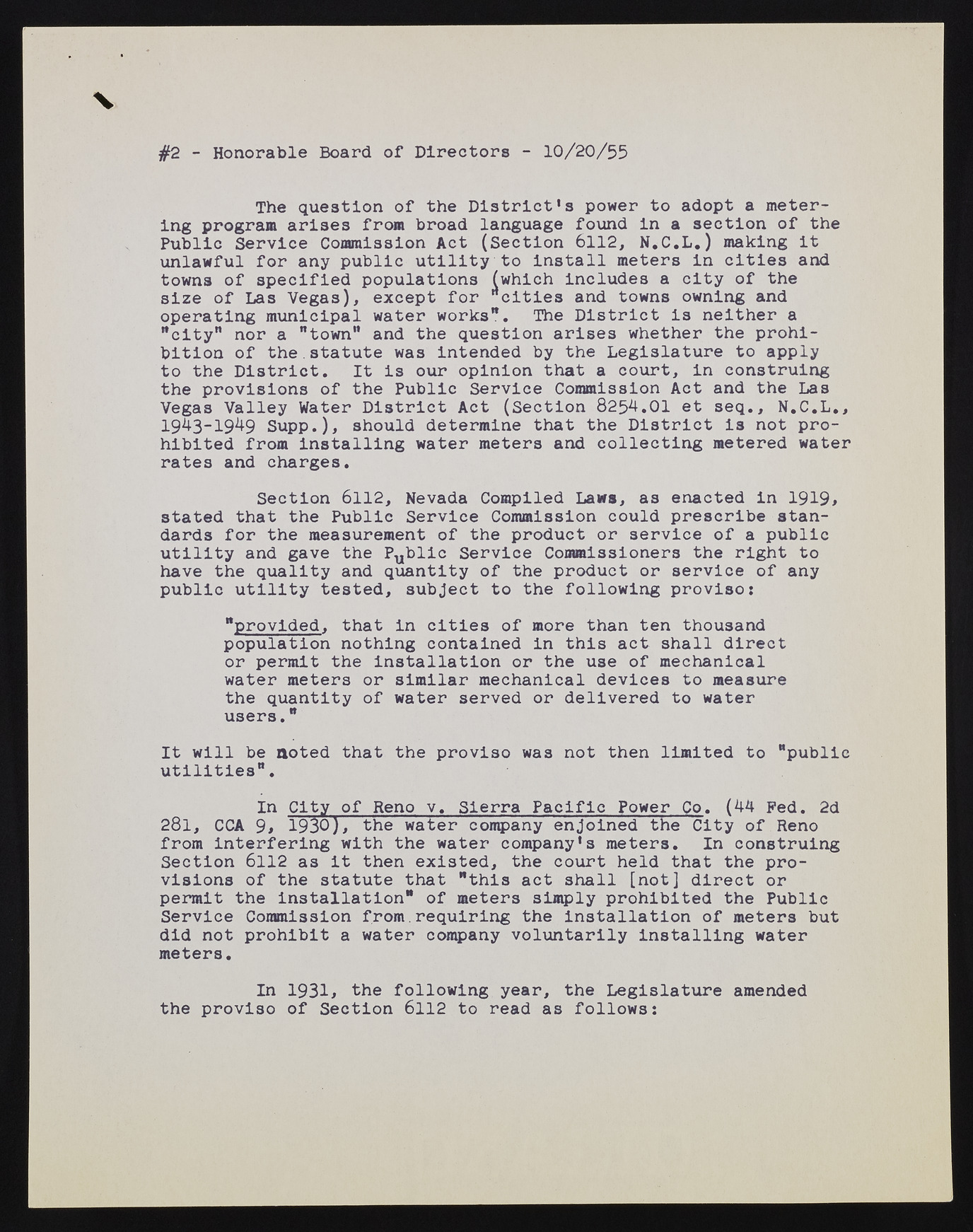Copyright & Fair-use Agreement
UNLV Special Collections provides copies of materials to facilitate private study, scholarship, or research. Material not in the public domain may be used according to fair use of copyrighted materials as defined by copyright law. Please cite us.
Please note that UNLV may not own the copyright to these materials and cannot provide permission to publish or distribute materials when UNLV is not the copyright holder. The user is solely responsible for determining the copyright status of materials and obtaining permission to use material from the copyright holder and for determining whether any permissions relating to any other rights are necessary for the intended use, and for obtaining all required permissions beyond that allowed by fair use.
Read more about our reproduction and use policy.
I agree.Information
Digital ID
Permalink
Details
More Info
Rights
Digital Provenance
Publisher
Transcription
#2 - Honorable Board of Directors - 10/20/55 The question of the District's power to adopt a metering program arises from broad language found in a section of the Public Service Commission Act (Section 6112, N.C.L.) making it unlawful for any public utility to install meters in cities and towns of specified populations (which includes a city of the size of Las Vegas), except for "cities and towns owning and operating municipal water works". The District is neither a "city" nor a "town" and the question arises whether the prohibition of t h e .statute was intended by the Legislature to apply to the District. It is our opinion that a court, in construing the provisions of the Public Service Commission Act and the Las Vegas Valley Water District Act (Section 8254.01 et seq., N.C.L., 1943-1949 Supp.), should determine that the District is not prohibited from installing water meters and collecting metered water rates and charges. Section 6112, Nevada Compiled Laws, as enacted in 1919# stated that the Public Service Commission could prescribe standards for the measurement of the product or service of a public utility and gave the Public Service Commissioners the right to have the quality and quantity of the product or service of any public utility tested, subject to the following proviso: "provided, that in cities of more than ten thousand population nothing contained in this act shall direct or permit the installation or the use of mechanical water meters or similar mechanical devices to measure the quantity of water served or delivered to water users." It will be aoted that the proviso was not then limited to "public utilities". In City of Reno v. Sierra Pacific Power Co. (44 Fed. 2d 28l, CCA 9 » 1930), the water company enjoined the City of Reno from interfering with the water company's meters. In construing Section 6112 as it then existed, the court held that the provisions of the statute that "this act shall [not] direct or permit the installation" of meters simply prohibited the Public Service Commission from.requiring the installation of meters but did not prohibit a water company voluntarily installing water meters. In 1931# the following year, the Legislature amended the proviso of Section 6112 to read as follows:

